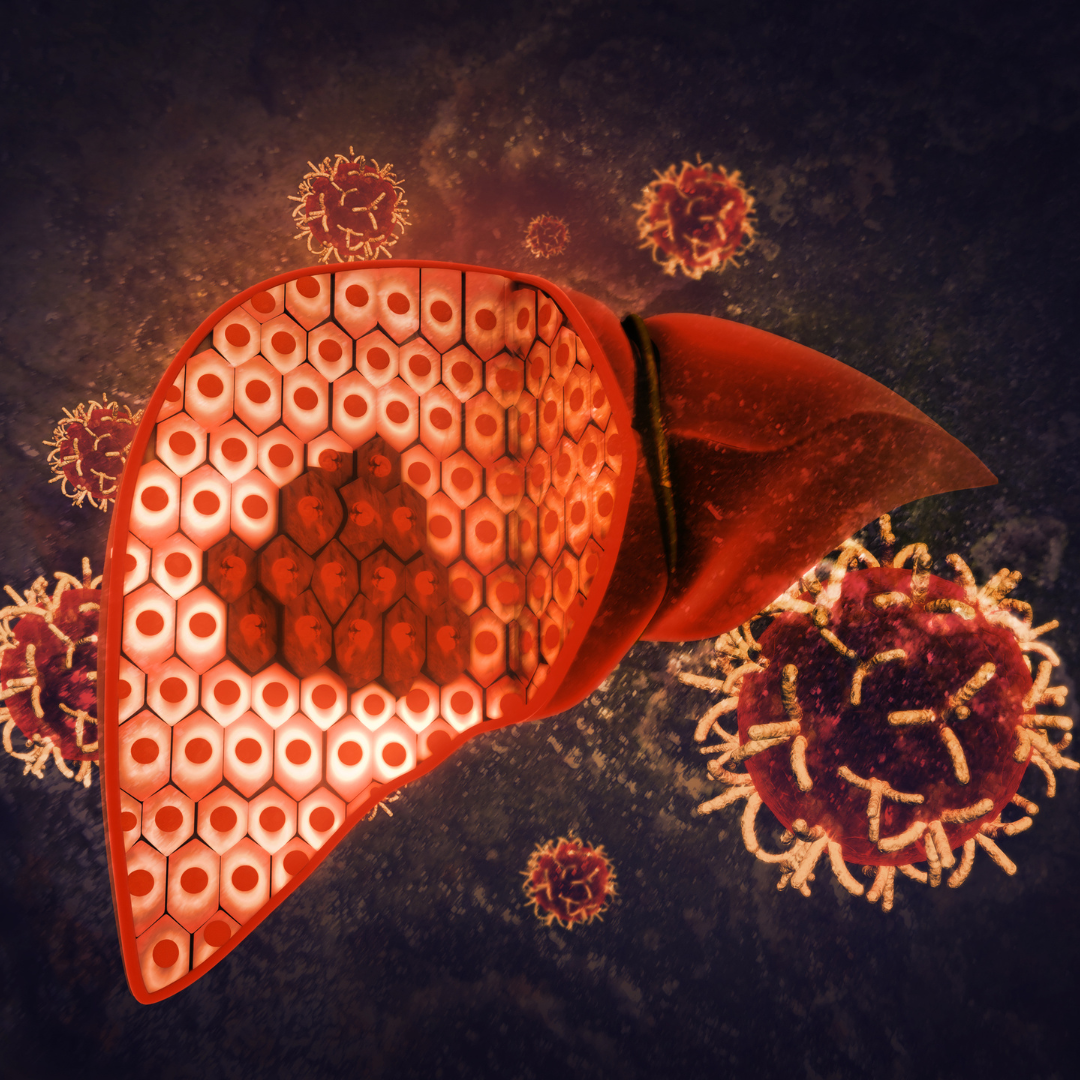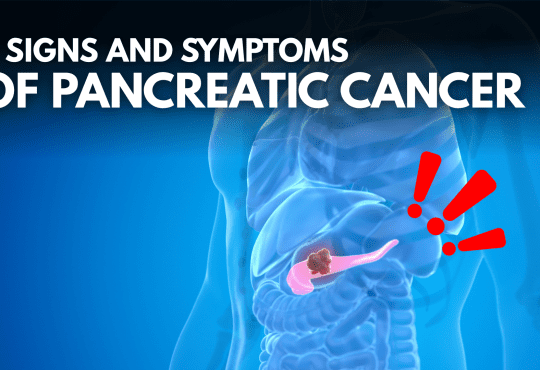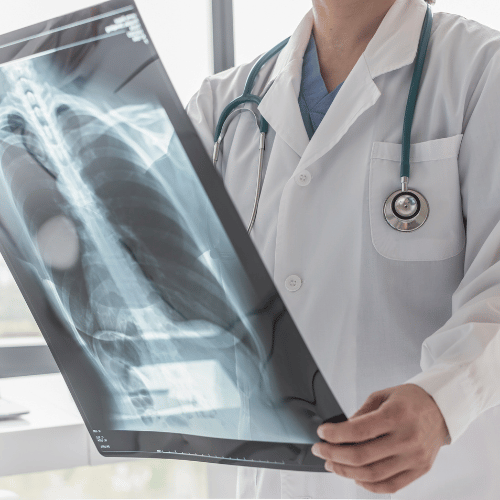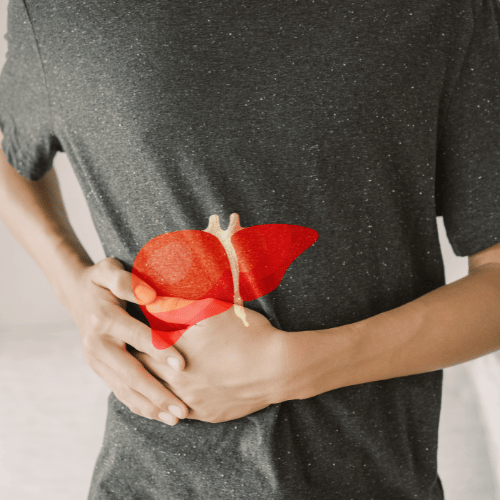
8 Signs and Symptoms of Liver Cancer
Let’s explore the key indicators that may suggest the presence of liver cancer, a serious condition that requires timely medical attention.
Liver cancer is a type of cancer that originates in the cells of the liver.
It can develop from various factors, including chronic liver disease, viral infections like hepatitis B or C, alcohol abuse, or exposure to certain toxins.
Detecting liver cancer in its early stages is crucial for successful treatment and improved outcomes.
By being aware of the signs and symptoms associated with liver cancer, you can take prompt action and seek appropriate medical care.
Early detection can significantly increase the chances of successful treatment and better overall prognosis.
Today, we will discuss eight important signs and symptoms that may indicate liver cancer.
It’s important to note that these signs and symptoms can vary from person to person, and not everyone with liver cancer will experience all of them.
However, being vigilant and recognizing these indicators can be instrumental in early diagnosis and intervention.
Remember, if you notice any of these signs or symptoms or have concerns about your liver health, it is crucial to consult with a healthcare professional for proper evaluation and guidance.
So, let’s dive into the eight signs and symptoms of liver cancer, empowering you with the knowledge to recognize potential warning signs and take control of your health.
Number 8. Abdominal Pain and Swelling
Persistent pain or discomfort in the upper right side of the abdomen can be an early symptom of liver cancer.
The liver is located in the upper right portion of the abdomen, and when cancer develops in this organ, it can cause irritation and inflammation, leading to discomfort or pain.
This pain may be dull or sharp and can vary in intensity.
As the tumor grows, it can cause swelling in the liver or nearby areas, resulting in an increased sensation of fullness in the abdomen.
This swelling can contribute to abdominal discomfort and may cause a visible bulge or distension.
It’s important to note that abdominal pain can have various causes, and liver cancer is just one of the potential factors.
Research and studies have shown the association between abdominal pain and liver cancer.
A study published in the journal Gut found that persistent abdominal pain was a common presenting symptom among patients diagnosed with primary liver cancer.
The study emphasized the importance of recognizing abdominal pain as a potential indicator of liver cancer to ensure timely diagnosis and treatment.
Liver cancer-related abdominal pain may be a result of several factors, such as tumor growth and expansion, stretching of the liver capsule, or involvement of surrounding tissues and structures.
In some cases, the pain may radiate to other areas, such as the back or shoulder.
If you experience persistent or worsening pain in the upper right side of your abdomen or any unexplained abdominal discomfort, it’s crucial to seek medical evaluation.
A healthcare professional can conduct a thorough examination, review your medical history, and order appropriate tests, such as imaging studies or blood tests, to assess the underlying cause of the pain.
Number 7. Unexplained Weight Loss
Sudden and unexplained weight loss can indeed serve as a warning sign of various health conditions, including liver cancer.
When cancerous cells develop in the liver, they can interfere with its normal functioning, leading to unintended weight loss.
Research and studies have highlighted the association between weight loss and liver cancer.
A study published in the Journal of Gastroenterology and Hepatology reported that weight loss was a common symptom among patients diagnosed with liver cancer.
The study emphasized the importance of recognizing unexplained weight loss as a potential indicator for further investigation and early detection of liver cancer.
The exact mechanisms behind weight loss in liver cancer are multifactorial.
The tumor itself may consume energy and nutrients, leading to metabolic changes and unintended weight loss.
Additionally, liver cancer can affect the production of hormones and proteins involved in metabolism, appetite regulation, and nutrient absorption, further contributing to weight loss.
If you are experiencing significant weight loss without making any intentional changes to your diet or exercise routine, it is crucial to consult with a healthcare professional.
They can assess your overall health, conduct relevant tests, and evaluate any additional symptoms or risk factors that may be indicative of liver cancer or other underlying conditions.
Prompt medical evaluation is essential as early detection and intervention can significantly impact treatment outcomes for liver cancer.
Additionally, unexplained weight loss can also be a symptom of other health issues, such as hormonal imbalances, gastrointestinal disorders, or metabolic abnormalities.
Therefore, it is important to receive a comprehensive evaluation to determine the underlying cause and appropriate treatment plan.
Number 6. Jaundice
Jaundice, the condition that turns your skin and eyes into a vibrant shade of yellow, is like Mother Nature’s way of giving you a colorful makeover.
But before you start auditioning for the role of a living emoji, it’s important to understand what jaundice actually signifies, especially when it comes to liver cancer and other liver-related conditions.
Picture this: Your liver, that superstar organ responsible for countless vital functions, including processing waste products from your blood.
One of these waste products is bilirubin, which is produced when your red blood cells break down.
Normally, the liver scoops up bilirubin and sends it packing through bile, a digestive juice.
However, when your liver encounters trouble, like in the case of liver cancer, it might struggle to handle bilirubin effectively, resulting in its accumulation in your body.
And voila! The result is jaundice, where your skin and eyes put on their yellow highlighter glow.
It’s like the ultimate fashion statement, but not one you want to flaunt for too long.
Jaundice can be a red flag, indicating liver cancer or other liver-related conditions.
But hold on! Just because you see a yellow hue, it doesn’t mean you’re destined for liver cancer fame.
Jaundice may not always be present in the early stages of liver cancer.
However, when it does make an appearance, it often suggests a more advanced stage of the disease.
So, if you find yourself resembling a walking banana or a lemon-lime superhero, it’s time to seek medical attention.
A healthcare professional will dive into detective mode, conducting tests, and performing a physical examination to determine the cause of your newfound yellow glow.
Blood tests will assess your liver function and bilirubin levels, while imaging studies might be employed to peek inside your liver and spot any potential troublemakers.
Remember, jaundice can be a sign of liver cancer, but it can also signal other liver conditions like hepatitis or cirrhosis.
So, it’s essential to let the experts unravel the mystery behind your vibrant transformation and guide you toward the right treatment.
Number 5. Fatigue and Weakness
Imagine feeling like you’re running on empty, with fatigue and weakness as your unwelcome companions.
It’s like having your energy levels do a disappearing act, leaving you feeling drained and worn out.
Well, liver cancer can be a sneaky culprit behind these persistent feelings of fatigue and weakness.
Think of your liver as the ultimate multitasker, juggling a myriad of essential functions in your body.
When cancerous cells take up residence in the liver, they can throw a wrench into its efficient operation.
As the tumor grows and disrupts the liver’s normal functioning, it can impact the production of vital proteins, metabolism, and nutrient absorption.
This interference can leave you feeling fatigued, weak, and lacking the usual pep in your step.
Research and studies have shown a connection between liver cancer and fatigue.
A study published in the journal Cancer Medicine revealed that fatigue was one of the most common symptoms reported by individuals diagnosed with liver cancer.
It’s important to recognize that fatigue can be a complex symptom influenced by various factors, including the cancer itself and the body’s response to it.
When cancer cells wreak havoc in the liver, it can affect the organ’s ability to perform its tasks efficiently.
For example, the liver plays a crucial role in metabolizing nutrients and producing substances that provide energy to the body.
When this process is disrupted, it can lead to feelings of exhaustion and weakness.
If you find yourself caught in the clutches of constant fatigue, don’t dismiss it as mere sleep deprivation or a busy lifestyle.
It’s important to have a conversation with a healthcare professional who can investigate the underlying case and determine if liver cancer or any other health condition may be contributing to your fatigue.
While fatigue can be associated with liver cancer, it’s important to note that it can also be a symptom of other medical conditions or a result of various lifestyle factors.
Therefore, a comprehensive evaluation by a healthcare professional is crucial for accurate diagnosis and appropriate management.
Number 4. Changes in Appetite and Digestion
Liver cancer can affect your appetite and digestion in various ways.
Imagine your liver as the body’s master chef, responsible for producing bile, a digestive juice that helps break down fats and absorb nutrients.
When cancerous cells invade this vital organ, they can interfere with its role in digestion and nutrient absorption, resulting in appetite loss, feeling full quickly, and digestive changes like nausea or vomiting.
Research and studies have shed light on the connection between liver cancer and appetite changes.
A study published in the Journal of Pain and Symptom Management found that individuals with advanced liver cancer frequently experienced appetite loss and early satiety (feeling full quickly) due to the tumor’s impact on the liver’s ability to regulate appetite.
The tumor’s presence in the liver can disrupt the production and flow of bile, affecting the breakdown and absorption of nutrients.
This interference can lead to a decreased desire to eat, as well as feeling full after consuming only small amounts of food.
Nausea and vomiting may also occur as a result of the tumor’s influence on the digestive process.
If you find yourself pushing food around your plate, feeling full faster than usual, or battling persistent nausea or vomiting, it’s crucial to bring these symptoms to the attention of a healthcare professional.
They can evaluate your overall health, conduct appropriate tests, and determine if liver cancer or another condition may be causing these digestive disruptions.
Number 3. Changes in Skin Appearance
Imagine waking up one day to find that your skin is playing tricks on you.
It may take on a reddish or paler tone, leaving you wondering if you’ve entered a parallel universe.
And then there’s that persistent itch that seems to have a mind of its own, making you wish you had an extra set of hands.
To add to the mystery, you notice the appearance of small spider-like blood vessels on your skin, as if a group of arachnids decided to have a dance party.
These skin changes could be indicative of liver cancer, as the liver’s ability to metabolize hormones and toxins may be compromised.
Research and studies have shown that liver cancer can lead to skin changes due to the liver’s reduced ability to process hormones and toxins.
For instance, the reddish or paler tone of the skin can occur when the liver struggles to metabolize hormones properly, affecting blood vessels and skin pigmentation.
Additionally, the accumulation of toxins due to impaired liver function can trigger itching, making you wish for a moment of relief.
Another interesting skin change associated with liver cancer is the appearance of spider angiomas, those delicate spider-like blood vessels.
They can emerge as a result of the liver’s compromised detoxification process.
While they may look intriguing, their presence serves as a reminder of the underlying disruption within the liver.
If you notice these skin changes, it’s important to seek medical advice for a proper evaluation.
Number 2. Unexplained Bruising or Bleeding
Have you ever woken up to a body adorned with mysterious bruises, as if you’ve been transformed into a walking work of abstract art?
Even the gentlest touch seems to leave behind unwanted marks, and your gums start bleeding unexpectedly while brushing your teeth.
These perplexing signs of bruising and bleeding could potentially be linked to liver cancer, a condition that disrupts the production of essential proteins necessary for blood clotting.
Our liver, our very own superhero organ, plays a critical role in producing clotting factors that allow our blood to form necessary clots, preventing excessive bleeding.
However, when liver cancer takes center stage, it can interfere with the liver’s ability to generate these vital proteins, resulting in abnormalities in the blood clotting process.
Numerous studies and research have revealed that individuals with liver cancer may experience unexplained bruising or bleeding.
The compromised function of the liver affects the production of clotting factors like fibrinogen and prothrombin, which are crucial for proper blood clot formation.
As a consequence, even minor injuries can trigger excessive bleeding or bruising, and you may notice frequent nosebleeds, bleeding gums, or unexplained bruising on your body.
It’s important to bear in mind that while liver cancer is one potential cause of bruising and bleeding symptoms, other factors can contribute to similar issues.
Certain medications, blood disorders, or deficiencies in other clotting-related components can also result in abnormal bleeding tendencies.
Therefore, seeking a comprehensive evaluation from a healthcare professional is necessary to determine the underlying cause and provide appropriate care.
Number 1. Enlarged Liver or Lump in the Abdomen
As you go about your day, you suddenly notice an unusual presence in your abdomen.
There’s a distinct lump or mass that seems to have taken up residence in the upper right side.
It’s a perplexing discovery, and you can’t help but wonder what could be causing it.
This palpable anomaly could be a result of liver cancer, as the disease progresses and causes the liver to enlarge.
The liver, our remarkable multitasking organ, plays a vital role in numerous bodily functions.
However, when liver cancer enters the picture, it disrupts the organ’s normal functioning and triggers an increase in its size.
As liver cancer advances, the tumor grows and the liver becomes enlarged.
This enlargement often manifests as a noticeable lump or mass in the upper right side of the abdomen.
It can be detected through a physical examination conducted by a healthcare professional or even during a self-examination.
It’s important to note that the presence of a lump or mass in the abdomen doesn’t automatically indicate liver cancer.
Various conditions, including benign liver tumors or cysts, can also give rise to abdominal masses.
Thus, it’s crucial to consult with a healthcare professional for a comprehensive evaluation and accurate diagnosis.
If you happen to discover such an unexpected presence in your abdomen, it’s essential to seek medical advice promptly.
A healthcare professional can conduct a thorough examination, order appropriate diagnostic tests, such as imaging scans or biopsies, and help determine the underlying cause of the lump or mass.
And there you have it, the 8 Signs and Symptoms of Liver Cancer.
Remember, while these symptoms can indicate liver cancer, they can also be caused by other conditions.
Therefore, a comprehensive evaluation is essential to determine the underlying cause.
We would love to hear from you!
Have you or someone you know experienced any of these signs?
How did you navigate the diagnosis and treatment?
Share your thoughts, experiences, and questions in the comments section below.
Your insights may provide support and encouragement to others who are going through a similar journey.
Remember, early detection, timely medical intervention, and ongoing care are essential in the fight against liver cancer.
Stay vigilant, prioritize your health, and together, let’s strive for a healthier future.









